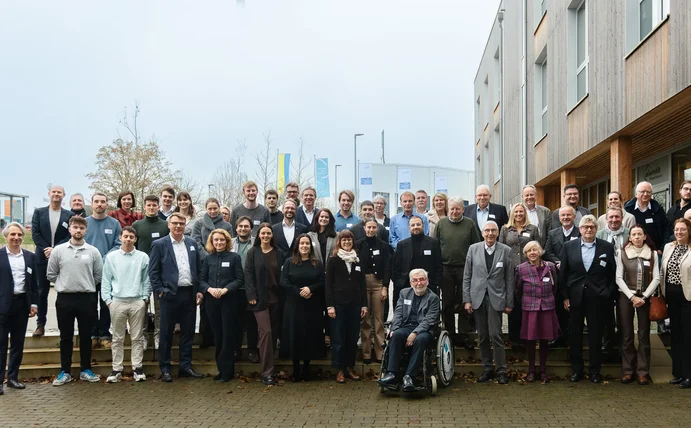
- Wirtschaft und Gesellschaft
Das Reinhard-Mohn-Institut für Unternehmensführung (RMI) setzt sich national und international für die Reform der Unternehmensführung in Theorie und Praxis ein. Es folgt der Führungsphilosophie von Reinhard Mohn, die auf praktischen Erfahrungen und verantwortungsvollem Umgang mit Menschen basiert.
Das Institut legt großen Wert auf praktische Relevanz und den Austausch mit Unternehmen. Es betrachtet Strategie, Management, Organisation und Steuerung als unternehmensübergreifende Aufgaben und fördert kooperative Unternehmensführung in Netzwerken.
Der „RMI Tag der Unternehmensführung“ ist ein renommiertes, jährliches Symposium auf dem Campus der Universität Witten/Herdecke mit führenden Referenten.
Seit seiner Gründung wird das Institut von der Bertelsmann Stiftung gefördert.
„Power, for All: How to Influence People by Understanding What They Want – What They Really, Really Want – and How to Use Your Power for Good”
Das Institut orientiert sich in seiner Forschung an der Partnerschaftsphilosophie von Reinhard Mohn. „Kooperation“ ist ein zentrales Thema in allen Projekten. Das RMI untersucht zum Beispiel, wie man Innovationsnetzwerke managt oder wie die Zusammenarbeit in Teams funktioniert. Jedes Jahr sammelt das Institut zusammen mit der Bertelsmann Stiftung Daten zu den Führungsbedingungen in Deutschland mit dem „Führungskräfte-Radar“.

Alle Publikationen des Reinhard-Mohn-Instituts der UW/H werden nach und nach in der Hochschulbibliographie erfasst.
Das RMI ist Teil der Lehrangebote an der Fakultät für Wirtschaft und Gesellschaft. Es bietet praxisnahe Kurse an und unterstützt mehrere Lehrstühle. Die Studierenden können ihre eigenen Erfahrungen und Ideen einbringen, da die Gruppen klein sind und der Austausch mit den Dozierenden intensiv ist. In Praxisseminaren arbeiten die Studierenden an echten Unternehmensproblemen und präsentieren ihre Lösungen den Führungskräften der Unternehmen. Außerdem halten regelmäßig Experten aus bekannten Unternehmen, Start-ups und Hidden Champions Vorträge über Management-Herausforderungen und arbeiten gemeinsam mit den Studierenden an Lösungen. Das RMI legt auch großen Wert auf die ethische Verantwortung der Führungskräfte. Im Bereich Wirtschaftsethik lernen die Studierenden anhand realer Fallbeispiele, ethische Fragestellungen zu verstehen und ein entsprechendes Verantwortungsbewusstsein zu entwickeln.
Cultural diversity has become a core asset and challenge for successful value-based management in a globalized world. Concepts of culture have been evolving and crude forms of cultural sensitivity are no longer sufficient. This is why this module invites students to learn about state-of-the-art cross-cultural management ideas and practical applications of key concepts. Cross-cultural competence means continuous learning and creative cooperation. (Prior or parallel participation in “Organizational Culture and Leadership” is encouraged.)
Instructors: Prof. Dr. Guido Möllering, Johanne Moll von Danwitz
Language: English
Module numbers: BM-WWM-1609; BM-WFW-2209; BW-WFW-2309; BS-WMa-2324; BG-WSG-2333; BY-WMV-2303
This seminar will deepen your understanding of current research in the field of strategic management. Building on my introductory course “Strategy,” it delves deeper into contemporary strategy research. This insight can serve as a crucial foundation for your future studies or work in management practice. In your studies, knowledge of current strategy research and the ability to process empirical research can help you prepare a thesis topic and give you a significant advantage in more advanced courses. For your future career in management, both the knowledge from primary research and the ability to synthesize abstract information can provide a competitive edge for you and your company. Our discussions will highlight the contributions of different authors and perspectives. You will be assigned to one of four key areas: industry, resources, competitive strategies, and culture. The course will emphasize the current state of theory development and empirical research in each of these areas. Please note that the main part of the seminar will take place over two days, so the preparatory reading will be extensive.
Instructor: Prof. Dr. Hendrik Wilhelm
Language: English
Module numbers: BM-WUn-1608; BM-WFW-1601; BM-WUn-2206
Unternehmen müssen sich heute in einem Wettbewerbsumfeld behaupten, in dem ökologische und soziale Nachhaltigkeit immer wichtiger werden. Führungskräfte im Nachhaltigkeitsmanagement verfügen nicht nur über hervorragende betriebswirtschaftliche Qualifikationen, die es ihnen ermöglichen, nachhaltige Praktiken in den Funktionsbereichen zu stärken, sondern sie durchdringen auch den gesellschaftlichen Kontext, der eine nachhaltige Unternehmensführung erfordert. In diesem Seminar lernen Sie, wie ein Partnerunternehmen mit dieser Herausforderung in der Praxis umgeht. Nachdem Sie konzeptionelle und methodische Grundlagen erarbeitet haben, führen Sie Interviews mit Praktiker:innen aus dem Partnerunternehmen, um ausgewählte Wertschöpfungsprozesse zu dokumentieren, Möglichkeiten zur Steigerung der Nachhaltigkeit dieser Prozesse zu entwickeln und deren Umsetzbarkeit kritisch zu prüfen. Ihre Ergebnisse präsentieren Sie Entscheider:innen im Unternehmen. Im Rahmen Ihrer Arbeit nutzen Sie aktuelle betriebs- und naturwissenschaftliche Forschung, um Ihre Vorschläge mit Evidenz und Argumenten zu untermauern.
Dozent: Prof. Dr. Hendrik Wilhelm
Unterrichtssprache: Deutsch
Modulkennungen: BM-WWM-1602; BM-WNW-2201; BS-WMa-2309
Organizing is a key management activity and organizations are both the context and the object of managerial work. This seminar introduces students to fundamental ideas on why organizations exist, how people behave in organizations, how organizations can be designed and changed strategically, and how they evolve in their environments. Moving from the individual level to the societal level as the semester progresses, this seminar also fosters a critical perspective on organizing as an ongoing creative, collective and contested practice that entails limitations for managerial control. Through in-class exercises, students explore the practical relevance of abstract concepts from organizational research.
Instructors: Prof. Dr. Guido Möllering, Johanne Moll von Danwitz
Language: English (primär; Deutsch)
Module numbers: BM-PBG-2207; BP-WFW-2207; BS-WMa-2307; BG-WSG-2327; BY-PGM-2307; Teil 1 von BM-PMa-1601 und BP-WMa-1601
&
Building on the Module „Organization“, the aim of this Module in the second half of the semester is that students connect their more abstract and theoretical knowledge about managing organizations to the real-life experiences of people who work in organizations. The tool for this is called an Organizational Narrative. To ‘narrate’ means to tell a story, in this case about things happening in an organization. Students will be writing stories of a person’s organizational life, as told by them and written up by students, guided by topics from the “Organization” Module taught in the first half of the semester.
Instructors: Prof. Dr. Guido Möllering, Johanne Moll von Danwitz
Language: English (primär, Deutsch)
Module numbers: BM-WFW-2221; BS-WFW-2308; BG-WFW-2307; Teil 2 von BM-PMa-1601 und BP-WMa-1601
This module prepares future leaders for managing their organizations’ complex relationships with society responsibly. Based on Stakeholder Theory, students will reflect on the embeddedness of management in terms of, for example, investors, industrial relations, supply chains, consumers, communities and authorities. They will also consider cultural and institutional factors that shape the work of managers. They will get to know exemplary cases of responsible corporate citizenship. In the applied part of this module, students will develop specific activities that can improve an organization’s stakeholder strategy and practice in relation to current topics such as sustainability, diversity or digital transformation.
Instructor: Prof. Dr. Guido Möllering
Language: English
Module numbers: BM-WWM-1607; BM-WFW-2211; BP-WFW-1601; BP-WFW-2207; BS-WMa-2326; BG-WSG-2334; BY-WIV-2309
The module provides a first understanding of the relationship between organizational culture and leadership. After considering conceptual foundations and definitions, we will distinguish to different levels of organizational culture: artifacts, espoused beliefs/values, and underlying assumptions. We will discuss how they determine behavior, perceptions, thoughts and feelings in organizational contexts.
Instructor: Prof. Dr. Guido Möllering
Language: English
Module numbers: BM-WWM-1603; BM-WFW-2210; BP-WFW-1601; BP-WFW-2207; BY-WIV-2308; BS-WMa-2325; BG-WSG-2333
Strategy—the long-term direction of an organization—is essential to understand firm performance and survival. Because strategy is at the heart of management, it is essential for students of management to understand how strategies are conceptualized, designed, and executed effectively. This seminar will introduce you to strategy using a mix of management concepts, engaging case studies, and cutting-edge research. You will learn how to analyze the strategic position of an organization and how to think about strategic choices. In line with the Witten tradition, you will also learn about critical perspectives on strategy informed by Sociology (e.g., strategy-as-practice). After successful completion of this module, you will be able to apply concepts and ideas from strategic management commonly used in organizations, critically discuss traditional heuristics for strategy making, and reflect upon the practice of strategy making itself. This seminar may will not only help you prepare for a management career by introducing you to strategy concepts but also hone your skills to work in teams and solve tasks in limited time frames, as you meet the challenges of your coursework.
Instructor: Prof. Dr. Hendrik Wilhelm
Language: English
Module numbers: BM-PMa-1603; BP-WMa-1603; BM-PBG-2206; BS-WMa-2305; BG-WSG-2325; BY-PGM-2306
Cultural diversity has become a core asset and challenge for successful value-based management in a globalized world. Concepts of culture have been evolving and crude forms of cultural sensitivity are no longer sufficient. This is why this module invites students to learn about state-of-the-art cross-cultural management ideas and practical applications of key concepts. Cross-cultural competence means continuous learning and creative cooperation. (Prior or parallel participation in “Organizational Culture and Leadership” is encouraged.)
Instructors: Prof. Dr. Guido Möllering, Johanne Moll von Danwitz
Language: English
Module numbers: BM-WWM-1609; BM-WFW-2209; BW-WFW-2309; BS-WMa-2324; BG-WSG-2333; BY-WMV-2303
This seminar will deepen your understanding of current research in the field of strategic management. Building on my introductory course “Strategy,” it delves deeper into contemporary strategy research. This insight can serve as a crucial foundation for your future studies or work in management practice. In your studies, knowledge of current strategy research and the ability to process empirical research can help you prepare a thesis topic and give you a significant advantage in more advanced courses. For your future career in management, both the knowledge from primary research and the ability to synthesize abstract information can provide a competitive edge for you and your company. Our discussions will highlight the contributions of different authors and perspectives. You will be assigned to one of four key areas: industry, resources, competitive strategies, and culture. The course will emphasize the current state of theory development and empirical research in each of these areas. Please note that the main part of the seminar will take place over two days, so the preparatory reading will be extensive.
Instructor: Prof. Dr. Hendrik Wilhelm
Language: English
Module numbers: BM-WUn-1608; BM-WFW-1601; BM-WUn-2206
Unternehmen müssen sich heute in einem Wettbewerbsumfeld behaupten, in dem ökologische und soziale Nachhaltigkeit immer wichtiger werden. Führungskräfte im Nachhaltigkeitsmanagement verfügen nicht nur über hervorragende betriebswirtschaftliche Qualifikationen, die es ihnen ermöglichen, nachhaltige Praktiken in den Funktionsbereichen zu stärken, sondern sie durchdringen auch den gesellschaftlichen Kontext, der eine nachhaltige Unternehmensführung erfordert. In diesem Seminar lernen Sie, wie ein Partnerunternehmen mit dieser Herausforderung in der Praxis umgeht. Nachdem Sie konzeptionelle und methodische Grundlagen erarbeitet haben, führen Sie Interviews mit Praktiker:innen aus dem Partnerunternehmen, um ausgewählte Wertschöpfungsprozesse zu dokumentieren, Möglichkeiten zur Steigerung der Nachhaltigkeit dieser Prozesse zu entwickeln und deren Umsetzbarkeit kritisch zu prüfen. Ihre Ergebnisse präsentieren Sie Entscheider:innen im Unternehmen. Im Rahmen Ihrer Arbeit nutzen Sie aktuelle betriebs- und naturwissenschaftliche Forschung, um Ihre Vorschläge mit Evidenz und Argumenten zu untermauern.
Dozent: Prof. Dr. Hendrik Wilhelm
Unterrichtssprache: Deutsch
Modulkennungen: BM-WWM-1602; BM-WNW-2201; BS-WMa-2309
Organizing is a key management activity and organizations are both the context and the object of managerial work. This seminar introduces students to fundamental ideas on why organizations exist, how people behave in organizations, how organizations can be designed and changed strategically, and how they evolve in their environments. Moving from the individual level to the societal level as the semester progresses, this seminar also fosters a critical perspective on organizing as an ongoing creative, collective and contested practice that entails limitations for managerial control. Through in-class exercises, students explore the practical relevance of abstract concepts from organizational research.
Instructors: Prof. Dr. Guido Möllering, Johanne Moll von Danwitz
Language: English (primär; Deutsch)
Module numbers: BM-PBG-2207; BP-WFW-2207; BS-WMa-2307; BG-WSG-2327; BY-PGM-2307; Teil 1 von BM-PMa-1601 und BP-WMa-1601
&
Building on the Module „Organization“, the aim of this Module in the second half of the semester is that students connect their more abstract and theoretical knowledge about managing organizations to the real-life experiences of people who work in organizations. The tool for this is called an Organizational Narrative. To ‘narrate’ means to tell a story, in this case about things happening in an organization. Students will be writing stories of a person’s organizational life, as told by them and written up by students, guided by topics from the “Organization” Module taught in the first half of the semester.
Instructors: Prof. Dr. Guido Möllering, Johanne Moll von Danwitz
Language: English (primär, Deutsch)
Module numbers: BM-WFW-2221; BS-WFW-2308; BG-WFW-2307; Teil 2 von BM-PMa-1601 und BP-WMa-1601
This module prepares future leaders for managing their organizations’ complex relationships with society responsibly. Based on Stakeholder Theory, students will reflect on the embeddedness of management in terms of, for example, investors, industrial relations, supply chains, consumers, communities and authorities. They will also consider cultural and institutional factors that shape the work of managers. They will get to know exemplary cases of responsible corporate citizenship. In the applied part of this module, students will develop specific activities that can improve an organization’s stakeholder strategy and practice in relation to current topics such as sustainability, diversity or digital transformation.
Instructor: Prof. Dr. Guido Möllering
Language: English
Module numbers: BM-WWM-1607; BM-WFW-2211; BP-WFW-1601; BP-WFW-2207; BS-WMa-2326; BG-WSG-2334; BY-WIV-2309
The module provides a first understanding of the relationship between organizational culture and leadership. After considering conceptual foundations and definitions, we will distinguish to different levels of organizational culture: artifacts, espoused beliefs/values, and underlying assumptions. We will discuss how they determine behavior, perceptions, thoughts and feelings in organizational contexts.
Instructor: Prof. Dr. Guido Möllering
Language: English
Module numbers: BM-WWM-1603; BM-WFW-2210; BP-WFW-1601; BP-WFW-2207; BY-WIV-2308; BS-WMa-2325; BG-WSG-2333
Strategy—the long-term direction of an organization—is essential to understand firm performance and survival. Because strategy is at the heart of management, it is essential for students of management to understand how strategies are conceptualized, designed, and executed effectively. This seminar will introduce you to strategy using a mix of management concepts, engaging case studies, and cutting-edge research. You will learn how to analyze the strategic position of an organization and how to think about strategic choices. In line with the Witten tradition, you will also learn about critical perspectives on strategy informed by Sociology (e.g., strategy-as-practice). After successful completion of this module, you will be able to apply concepts and ideas from strategic management commonly used in organizations, critically discuss traditional heuristics for strategy making, and reflect upon the practice of strategy making itself. This seminar may will not only help you prepare for a management career by introducing you to strategy concepts but also hone your skills to work in teams and solve tasks in limited time frames, as you meet the challenges of your coursework.
Instructor: Prof. Dr. Hendrik Wilhelm
Language: English
Module numbers: BM-PMa-1603; BP-WMa-1603; BM-PBG-2206; BS-WMa-2305; BG-WSG-2325; BY-PGM-2306
Managers rely on implicit theories to guide their day-to-day decision-making, for example, on how to implement a sustainability program. Because these theories often result from personal experiences, they draw on limited and biased data. To provide you with a systematic foundation on how to address problems in management, this seminar introduces you to major classic and contemporary management theories covering a broad spectrum of organizational phenomena. To achieve this goal, the seminar blends conceptual input, student presentations on case studies showcasing the application of each theory, and cutting-edge research advancing theories of management.
Instructor: Prof. Dr. Hendrik Wilhelm
Language: English
Module numbers: MS-PSO-1803; MM-PTM-2501
This seminar offers an action-based learning experience of strategy making and execution. In a multiple-round web-based simulation, you and your fellow team members will lead a fictitious firm in the electronic sensors industry. As executive decision makers, your task is to ensure that your company survives and strives in a dynamic competitive environment. To do so, you will analyze your firm and the competitive environment, and then formulate, implement, monitor, and adjust your strategy. Your decisions will cover major business functions, such as R&D, Procurement, Production, Marketing, and Finance. As socially responsible managers, you will also consider the community in which your company is embedded. Apply your strategy knowledge, team skills and business insights gained from earlier Strategy & Organization seminars and demonstrate your ability to outcompete other companies. Accompanying seminar sessions serve as recap on strategic management concepts and forum to review and analyze the performance of your firms.
Instructor: Prof. Dr. Hendrik Wilhelm
Language: English
Module numbers: MS-WSt-1806; MS-WOr-1806; MS-WFW-1808; MM-WF-2502; MG-WFW-1805
The module complements the study of business ethics and corporate responsibility at large, focusing on ethical issues occurring within organizations. It emphasizes the students’ own ethical awareness and personal development. We cover ethical foundations in philosophy, ethical decision making, communication, leadership, diversity and organizational implications. Students learn how to identify and deal with the many ethical dilemmas occurring in organizations in practice. They work on a project tracing concerning real-life ethical issues and develop their moral standpoint as well as ethical management skills.
Instructor: Prof. Dr. Guido Möllering
Language: English
Module numbers: MS-WOr-1802; MG-WFW-1804; MP-EFE-1805; EO-C3
Inter-organizational relations (IORs) are increasingly important in our times, because it is impossible more than ever to integrate all required capabilities or simply buy them on the spot in markets. But what exactly are the reasons for linking up with other organizations, which forms of collaboration are common, and how are networks of organizations to be managed? The module addresses these questions from a management and organization studies perspective, considering four main types of IORs: 1) Strategic Alliances and Networks, 2) Regional Networks and Clusters, 3) Global Production and Supply Networks, and 4) Innovation and Project Networks.
Instructor: Prof. Dr. Guido Möllering
Language: English
Module number: MS-WOr-1804
International Strategy concerns the opportunities and challenges arising from doing business across borders and within a globalized economy. This seminar provides an introduction to theories and concepts of international management—for example, options for organizing and managing international operations—with a focus on real-world examples and case studies. In doing so, it raises awareness for the diversity that characterizes an international competitive environment. It also builds intuition about the nature of existing and newly emerging threats and opportunities that define business success and how to compete effectively in international markets.
Instructor: Prof. Dr. Hendrik Wilhelm
Language: English
Module numbers: MS-WSt-1802; MP-EFE-1803; MG-WFW-1802
This module examines state-of-the art leadership concepts and issues in organizational contexts. While classic approaches to leadership are briefly revisited (e.g. trait, behavioural, situational), the emphasis is on more recent developments and current debates in this field (e.g. authentic, transformational, servant, shared, virtual). From a research perspective, different theories and concepts of leadership help to understand how leadership emerges, what role followers play, and what individual and social factors influence leadership. From a practical perspective, the latest insights from leadership research will be applied to relevant topics such as creativity, change, conflict, crisis, culture, ethics, emotions or work-life balance.
Instructors: Prof. Dr. Guido Möllering, Johanne Moll von Danwitz
Language: English
Module numbers: MS-WOr-1803; MM-WLT-2503; MP-ELT-2503
Organizing is a key management activity and organizations are both the context and the object of managerial work. This seminar introduces students to fundamental ideas on why organizations exist, how people behave in organizations, how organizations can be designed and changed strategically, and how they evolve in their environments. Moving from the individual level to the societal level as the semester progresses, this seminar also fosters a critical perspective on organizing as an ongoing creative, collective and contested practice that entails limitations for managerial control. Through in-class exercises, students explore the practical relevance of abstract concepts from organizational research.
Instructors: Prof. Dr. Guido Möllering, Johanne Moll von Danwitz
Language: English (primär; Deutsch)
Module numbers: BM-PBG-2208; BP-WFW-2207; BS-WMa-2307; BG-WSG-2327; Teil 1 von BM-PMa-1601 und BP-WMa-1601
Managers often stress two issues when talking candidly about their organizations: problems related to their organization’s culture and failed organizational change. In this seminar we will uncover what makes these two phenomena so important and troublesome for managers. We will critically evaluate the notion of organizational culture and its implications for management. To do so, we uncover mechanisms of culture emergence and transmission and explore how researchers capture organizational culture. Building on these insights, we connect culture to organizational change. We will discuss different approaches in change management, and critically discuss managers push towards cultural change.
Instructor: Prof. Dr. Hendrik Wilhelm
Language: English
Module number: MS-WOr-1801
Instructors: Prof. Dr. Guido Möllering, Prof. Dr. Joachim Zweynert
Language: English
Module numbers: MS-PSO-1801; MM-PLT-2501; MG-PGM-1801;MP-CLT-2501
Corporate Social Responsibility (CSR) has become a broad subject encompassing a range of topics from ownership, profit, stakeholder relationships and accountability, to sustainability and the general role of business in society. The seminar reviews the origins of the CSR debate, its theoretical underpinnings, driving forces, implicit tensions, various practical manifestations and, in particular, its strategic implications. Special attention is given to the question of how CSR becomes ‘strategic’ in the first place and how businesses collaborate with stakeholders in various forms of partnerships and initiatives. Students work on case studies that illustrate and expand their understanding of CSR-shaped strategies as a matter of sustainable value creation within organizations and organizational networks and fields.
Instructor: Prof. Dr. Guido Möllering
Language: English
Module numbers: MS-WSt-1805; MM-WSM-2503; MP-EFE-1804; MP-EI-2504
Das Seminar gibt einen Überblick über die wichtigsten Konzepte und Anwendungen des strategischen Managements mit einer besonderen Berücksichtigung internationaler Managementstrategien. Betrachtet werden generelle Fragen der strategischen Analyse, Ausgestaltung und Umsetzung. Darauf aufbauend wird der Blick auf die Möglichkeiten, Formen und Herausforderungen der Internationalisierung von Unternehmen gelenkt. Strategisches und internationales Management werden zudem als verantwortungsvolle Aufgabenfelder reflektiert, die das Unternehmen mit seiner vielfältigen Umwelt verknüpfen.
Dozent: Prof. Dr. Hendrik Wilhelm
Unterrichtssprache: Deutsch
Modulkennung(en): MG-PGM-1808
The megatrends of demographics and digitization are having a massive impact on the human resources management (HR management) of many companies. On top the pandemic leads to massive challenges on the people side. Strategic HR management is becoming a key factor. The seminar will focus on the following aspects in particular: Basic Elements of a Human Resources Strategy, Demographic Risk Management, Strategic Workforce Planning, Performance Management, Incentive Programs, Recruiting and Employer Branding, Talent Management, Leadership, Retention Management, Managing Human Capital, HR Analytics, Diversity, Digital HR, Digital Talent Management, Future of Work and New Ways of Working.
Instructor: Hon.-Prof. Dr. Rainer Strack
Language: English
Module numbers: MS-WOr-1806; BM-WWM-1607; BM-WFW-1601; BM-WFW-2208; BS-WMa-2323; BY-WIV-2311
This module traces the theoretical foundations of strategy (such as competitive forces, resources and capabilities) and core strategic issues in organizations (such as innovation, collaboration, internationalization, governance, change). We will also consider the latest developments in strategic management theory regarding strategy as process and practice. Throughout the course, theoretical concepts will be investigated regarding their practical and organizational implications, based on numerous real-life cases discussed in class.
Instructor: Prof. Dr. Guido Möllering
Language: English
Module number: MS-PSO-1802
Managers rely on implicit theories to guide their day-to-day decision-making, for example, on how to implement a sustainability program. Because these theories often result from personal experiences, they draw on limited and biased data. To provide you with a systematic foundation on how to address problems in management, this seminar introduces you to major classic and contemporary management theories covering a broad spectrum of organizational phenomena. To achieve this goal, the seminar blends conceptual input, student presentations on case studies showcasing the application of each theory, and cutting-edge research advancing theories of management.
Instructor: Prof. Dr. Hendrik Wilhelm
Language: English
Module numbers: MS-PSO-1803; MM-PTM-2501
This seminar offers an action-based learning experience of strategy making and execution. In a multiple-round web-based simulation, you and your fellow team members will lead a fictitious firm in the electronic sensors industry. As executive decision makers, your task is to ensure that your company survives and strives in a dynamic competitive environment. To do so, you will analyze your firm and the competitive environment, and then formulate, implement, monitor, and adjust your strategy. Your decisions will cover major business functions, such as R&D, Procurement, Production, Marketing, and Finance. As socially responsible managers, you will also consider the community in which your company is embedded. Apply your strategy knowledge, team skills and business insights gained from earlier Strategy & Organization seminars and demonstrate your ability to outcompete other companies. Accompanying seminar sessions serve as recap on strategic management concepts and forum to review and analyze the performance of your firms.
Instructor: Prof. Dr. Hendrik Wilhelm
Language: English
Module numbers: MS-WSt-1806; MS-WOr-1806; MS-WFW-1808; MM-WF-2502; MG-WFW-1805
The module complements the study of business ethics and corporate responsibility at large, focusing on ethical issues occurring within organizations. It emphasizes the students’ own ethical awareness and personal development. We cover ethical foundations in philosophy, ethical decision making, communication, leadership, diversity and organizational implications. Students learn how to identify and deal with the many ethical dilemmas occurring in organizations in practice. They work on a project tracing concerning real-life ethical issues and develop their moral standpoint as well as ethical management skills.
Instructor: Prof. Dr. Guido Möllering
Language: English
Module numbers: MS-WOr-1802; MG-WFW-1804; MP-EFE-1805; EO-C3
Inter-organizational relations (IORs) are increasingly important in our times, because it is impossible more than ever to integrate all required capabilities or simply buy them on the spot in markets. But what exactly are the reasons for linking up with other organizations, which forms of collaboration are common, and how are networks of organizations to be managed? The module addresses these questions from a management and organization studies perspective, considering four main types of IORs: 1) Strategic Alliances and Networks, 2) Regional Networks and Clusters, 3) Global Production and Supply Networks, and 4) Innovation and Project Networks.
Instructor: Prof. Dr. Guido Möllering
Language: English
Module number: MS-WOr-1804
International Strategy concerns the opportunities and challenges arising from doing business across borders and within a globalized economy. This seminar provides an introduction to theories and concepts of international management—for example, options for organizing and managing international operations—with a focus on real-world examples and case studies. In doing so, it raises awareness for the diversity that characterizes an international competitive environment. It also builds intuition about the nature of existing and newly emerging threats and opportunities that define business success and how to compete effectively in international markets.
Instructor: Prof. Dr. Hendrik Wilhelm
Language: English
Module numbers: MS-WSt-1802; MP-EFE-1803; MG-WFW-1802
This module examines state-of-the art leadership concepts and issues in organizational contexts. While classic approaches to leadership are briefly revisited (e.g. trait, behavioural, situational), the emphasis is on more recent developments and current debates in this field (e.g. authentic, transformational, servant, shared, virtual). From a research perspective, different theories and concepts of leadership help to understand how leadership emerges, what role followers play, and what individual and social factors influence leadership. From a practical perspective, the latest insights from leadership research will be applied to relevant topics such as creativity, change, conflict, crisis, culture, ethics, emotions or work-life balance.
Instructors: Prof. Dr. Guido Möllering, Johanne Moll von Danwitz
Language: English
Module numbers: MS-WOr-1803; MM-WLT-2503; MP-ELT-2503
Organizing is a key management activity and organizations are both the context and the object of managerial work. This seminar introduces students to fundamental ideas on why organizations exist, how people behave in organizations, how organizations can be designed and changed strategically, and how they evolve in their environments. Moving from the individual level to the societal level as the semester progresses, this seminar also fosters a critical perspective on organizing as an ongoing creative, collective and contested practice that entails limitations for managerial control. Through in-class exercises, students explore the practical relevance of abstract concepts from organizational research.
Instructors: Prof. Dr. Guido Möllering, Johanne Moll von Danwitz
Language: English (primär; Deutsch)
Module numbers: BM-PBG-2208; BP-WFW-2207; BS-WMa-2307; BG-WSG-2327; Teil 1 von BM-PMa-1601 und BP-WMa-1601
Managers often stress two issues when talking candidly about their organizations: problems related to their organization’s culture and failed organizational change. In this seminar we will uncover what makes these two phenomena so important and troublesome for managers. We will critically evaluate the notion of organizational culture and its implications for management. To do so, we uncover mechanisms of culture emergence and transmission and explore how researchers capture organizational culture. Building on these insights, we connect culture to organizational change. We will discuss different approaches in change management, and critically discuss managers push towards cultural change.
Instructor: Prof. Dr. Hendrik Wilhelm
Language: English
Module number: MS-WOr-1801
Instructors: Prof. Dr. Guido Möllering, Prof. Dr. Joachim Zweynert
Language: English
Module numbers: MS-PSO-1801; MM-PLT-2501; MG-PGM-1801;MP-CLT-2501
Corporate Social Responsibility (CSR) has become a broad subject encompassing a range of topics from ownership, profit, stakeholder relationships and accountability, to sustainability and the general role of business in society. The seminar reviews the origins of the CSR debate, its theoretical underpinnings, driving forces, implicit tensions, various practical manifestations and, in particular, its strategic implications. Special attention is given to the question of how CSR becomes ‘strategic’ in the first place and how businesses collaborate with stakeholders in various forms of partnerships and initiatives. Students work on case studies that illustrate and expand their understanding of CSR-shaped strategies as a matter of sustainable value creation within organizations and organizational networks and fields.
Instructor: Prof. Dr. Guido Möllering
Language: English
Module numbers: MS-WSt-1805; MM-WSM-2503; MP-EFE-1804; MP-EI-2504
Das Seminar gibt einen Überblick über die wichtigsten Konzepte und Anwendungen des strategischen Managements mit einer besonderen Berücksichtigung internationaler Managementstrategien. Betrachtet werden generelle Fragen der strategischen Analyse, Ausgestaltung und Umsetzung. Darauf aufbauend wird der Blick auf die Möglichkeiten, Formen und Herausforderungen der Internationalisierung von Unternehmen gelenkt. Strategisches und internationales Management werden zudem als verantwortungsvolle Aufgabenfelder reflektiert, die das Unternehmen mit seiner vielfältigen Umwelt verknüpfen.
Dozent: Prof. Dr. Hendrik Wilhelm
Unterrichtssprache: Deutsch
Modulkennung(en): MG-PGM-1808
The megatrends of demographics and digitization are having a massive impact on the human resources management (HR management) of many companies. On top the pandemic leads to massive challenges on the people side. Strategic HR management is becoming a key factor. The seminar will focus on the following aspects in particular: Basic Elements of a Human Resources Strategy, Demographic Risk Management, Strategic Workforce Planning, Performance Management, Incentive Programs, Recruiting and Employer Branding, Talent Management, Leadership, Retention Management, Managing Human Capital, HR Analytics, Diversity, Digital HR, Digital Talent Management, Future of Work and New Ways of Working.
Instructor: Hon.-Prof. Dr. Rainer Strack
Language: English
Module numbers: MS-WOr-1806; BM-WWM-1607; BM-WFW-1601; BM-WFW-2208; BS-WMa-2323; BY-WIV-2311
This module traces the theoretical foundations of strategy (such as competitive forces, resources and capabilities) and core strategic issues in organizations (such as innovation, collaboration, internationalization, governance, change). We will also consider the latest developments in strategic management theory regarding strategy as process and practice. Throughout the course, theoretical concepts will be investigated regarding their practical and organizational implications, based on numerous real-life cases discussed in class.
Instructor: Prof. Dr. Guido Möllering
Language: English
Module number: MS-PSO-1802
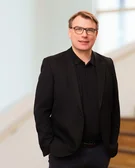
Univ.-Prof. Dr.
Direktor
Fakultät für Wirtschaft und Gesellschaft (Department für Management und Unternehmertum) | Reinhard-Mohn-Institut für Unternehmensführung
Orcid-ID: 0000-0003-1157-7289
Alfred-Herrhausen-Straße 50
58455 Witten
Raumnummer: E.095

Univ.-Prof. Dr.
Stellvertretender Direktor
Fakultät für Wirtschaft und Gesellschaft (Department für Management und Unternehmertum) | Reinhard-Mohn-Institut für Unternehmensführung
Alfred-Herrhausen-Straße 50
58455 Witten
Raumnummer: E.096
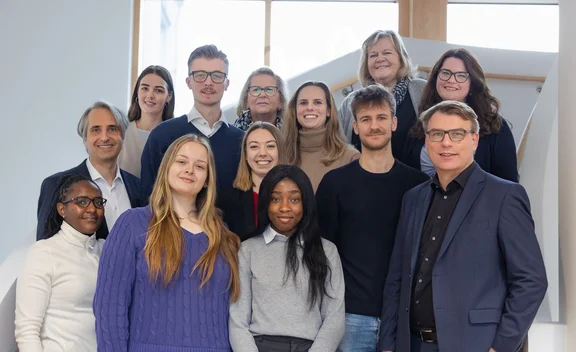

Wissenschaftliche Mitarbeiterin
Reinhard-Mohn-Institut für Unternehmensführung
Alfred-Herrhausen-Straße 50
58448 Witten
Raumnummer: C-E.098

Assistenz
Fakultät für Wirtschaft und Gesellschaft (Department für Management und Unternehmertum) | Reinhard-Mohn-Institut für Unternehmensführung
Alfred-Herrhausen-Straße 50
58455 Witten
Raumnummer: E.094
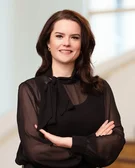
Wissenschaftliche Mitarbeiterin
Fakultät für Wirtschaft und Gesellschaft (Department für Management und Unternehmertum) | Reinhard-Mohn-Institut für Unternehmensführung
Alfred-Herrhausen-Straße 50
58455 Witten
Raumnummer: E.097

Wissenschaftlicher Projektmitarbeiter
Fakultät für Wirtschaft und Gesellschaft (Department für Management und Unternehmertum) | Reinhard-Mohn-Institut für Unternehmensführung
Alfred-Herrhausen-Straße 50
58455 Witten
Raumnummer: 1.193

Dr.
Wissenschaftliche Mitarbeiterin
Fakultät für Wirtschaft und Gesellschaft (Department für Management und Unternehmertum) | Reinhard-Mohn-Institut für Unternehmensführung
Alfred-Herrhausen-Straße 50
58448 Witten
Raumnummer: E.093

Wissenschaftlicher Projektmitarbeiter
Fakultät für Wirtschaft und Gesellschaft (Department für Management und Unternehmertum) | Reinhard-Mohn-Institut für Unternehmensführung
Alfred-Herrhausen-Straße 50
58455 Witten
Raumnummer: E.093

Dr.
Wissenschaftliche Mitarbeiterin
Fakultät für Wirtschaft und Gesellschaft (Department für Management und Unternehmertum) | Reinhard-Mohn-Institut für Unternehmensführung
Alfred-Herrhausen-Straße 50
58455 Witten
Raumnummer: E.097
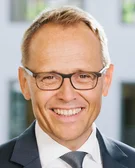
Hon.-Prof. Dr.
Honorarprofessor
Reinhard-Mohn-Institut für Unternehmensführung
Alfred-Herrhausen-Straße 50
58455 Witten

Dr.-Ing. Hon.-Prof.
Honorarprofessor
Reinhard-Mohn-Institut für Unternehmensführung
Alfred-Herrhausen-Straße 50
58455 Witten

Wissenschaftliche Mitarbeiterin
Fakultät für Wirtschaft und Gesellschaft (Department für Management und Unternehmertum) | Reinhard-Mohn-Institut für Unternehmensführung
Alfred-Herrhausen-Straße 50
58455 Witten
Raumnummer: C-E.098

Assistenz
Fakultät für Wirtschaft und Gesellschaft (Department für Management und Unternehmertum) | Reinhard-Mohn-Institut für Unternehmensführung
Alfred-Herrhausen-Straße 50
58455
Raumnummer: E.094
Das Reinhard-Mohn-Institut verfügt über ein Kuratorium mit beratender, mitgestaltender und überwachender Funktion. Es umfasst folgende Mitglieder:
Dr. Brigitte Mohn (Vorsitzende), Vorstandsvorsitzende der Bertelsmann Stiftung
Prof. Dr. med. Martin Butzlaff (Stv. Vorsitzender), Präsident der Universität Witten/Herdecke
Dr. Immanuel Hermreck, Personalvorstand der Bertelsmann SE & Co. KGaA
Liz Mohn, Ehrenmitglied des Kuratoriums der Bertelsmann Stiftung
Dr. Monika Olivo, Kaufmännische Leitung der Fakultät für Wirtschaft und Gesellschaft, Universität Witten/Herdecke
Univ.-Prof. Dr. Dirk Sauerland, Dekan der Fakultät für Wirtschaft und Gesellschaft, Universität Witten/Herdecke
Katharina Weghmann, Mitglied des Aufsichtsrats der UW/H